- Introduction: Why Financial Censorship Matters More Than Ever in 2025
- 1. What Is Financial Censorship and Why Is It a Growing Concern in 2025?
- 2. How Payment Platforms Are Silencing Users Without Legal Oversight
- 3. Big Tech Meets Big Finance: Content Moderation’s Creeping Control Over Money
- 4. Case Studies: When U.S. Banks and Fintech Firms Blocked Lawful Accounts
- 5. Legal Gray Zones: What U.S. Law Says (and Doesn’t Say) About Financial Deplatforming
- 6. How U.S. Financial Censorship Compares to Global Practices
- 7. Impact on Digital Entrepreneurs, Freelancers, and Content Creators
- 8. Tools and Tactics to Protect Yourself from Financial Censorship
- 9. The Role of Decentralized Finance (DeFi) in Fighting Back
- 10. What Experts, Activists, and Legislators Are Saying in 2025
- 11. FAQs and Resources to Navigate Financial Censorship Safely
- 12. Final Thoughts: Toward a Financially Free and Fair Digital Economy
- External Reference Links
Introduction: Why Financial Censorship Matters More Than Ever in 2025
In 2025, your ability to earn, donate, or even spend money online may depend less on your financial history — and more on your opinions, content, or affiliations. Welcome to the age of financial censorship, where banks, payment processors, and tech platforms can silently shut down your digital wallet without ever stepping into a courtroom.
While this may sound dystopian, it’s already reality for thousands of Americans. From creators being demonetized without warning to nonprofits losing access to platforms like PayPal or GoFundMe, financial censorship is reshaping the U.S. digital economy — and most people don’t even realize it.
This blog post explores:
- How financial deplatforming happens behind the scenes
- Which industries and individuals are most at risk
- The legal (and ethical) gray areas Big Tech exploits
- What global trends say about the future of online finance
- Tools and tactics to help you protect your digital income and access
Whether you’re a freelancer, business owner, activist, or everyday user, understanding financial censorship isn’t optional — it’s essential.

1. What Is Financial Censorship and Why Is It a Growing Concern in 2025?
Financial censorship refers to the practice of restricting or denying individuals or organizations access to financial services — such as payments, banking, or donations — based not on criminal activity, but on vague or subjective policy violations. In 2025, it’s becoming a powerful, invisible tool that controls speech, behavior, and livelihoods in the digital economy.
How It Works in the Real World
You’re not breaking any laws. You’re not committing fraud. But suddenly:
- Your PayPal account is frozen without warning
- Your Stripe payments are suspended due to a “terms violation”
- You’re removed from Patreon or YouTube monetization for “sensitive content”
- A GoFundMe campaign is taken down with no clear explanation
No court order. No regulator. Just a few clicks — and your income stream is gone.
Why It’s Surging in the United States
In recent years, financial censorship has become more common due to:
- Increased reliance on digital payment platforms
- The spread of automated moderation systems with opaque rules
- Mounting political and public pressure on platforms to “police misinformation”
- A legal environment where private companies face little accountability
According to a 2025 study by the Digital Civil Liberties Alliance:
“Over 41% of digital creators and small business owners in the U.S. report having financial services suspended at least once, with 67% saying they never received a clear reason.”
It’s Not Just About Money — It’s About Control
What makes financial censorship especially dangerous is that it’s:
- Instant and silent — decisions are rarely public or appealable
- Policy-driven, not law-driven — so legal protections don’t apply
- Scalable and automated — powered by AI that flags “risky” users at scale
- Emotionally and financially devastating — especially for creators and independent workers
In a digital-first economy, cutting off someone’s payment access is the modern equivalent of locking them out of society.
2. How Payment Platforms Are Silencing Users Without Legal Oversight
In today’s digital economy, companies like PayPal, Stripe, Venmo, Patreon, and even banks wield enormous unchecked power. These platforms can restrict, suspend, or terminate your access to money — often without warning, and without any legal requirement to justify their decisions. This is the essence of financial censorship without legal oversight, and it’s becoming disturbingly common in the U.S. in 2025.
Terms of Service Trump Your Rights
Unlike government action, private companies are not bound by constitutional free speech protections. Instead, their decisions rely on internal “Terms of Service” — which are:
- Vaguely written
- Subject to change at any time
- Enforced arbitrarily or inconsistently
- Rarely explained to the user in plain language
“Your account has been suspended due to a violation of our Acceptable Use Policy.”
That’s the kind of generic message users often receive — with no further detail and no real chance to appeal.
Automated Systems Are Making the Decisions
In 2025, many platforms use AI-driven moderation tools to identify what they call “risky” behavior. These systems:
- Flag keywords, topics, or user behavior patterns
- Are trained on biased or incomplete data
- Operate at scale — with little to no human review
- Often result in false positives that penalize innocent users
A 2024 MIT study found that 23% of payment account bans were “likely erroneous” and stemmed from algorithmic misinterpretation.
Opaque Enforcement = Zero Accountability
Most platforms do not:
- Publish transparency reports
- Offer meaningful appeals processes
- Share internal moderation logic
- Provide a timeline for reinstatement
This creates a system where financial exclusion happens in silence, especially to independent creators, freelancers, activists, or politically non-mainstream individuals.
Who’s Most at Risk?
- Content creators discussing controversial or political topics
- Alternative health advocates or whistleblowers
- Nonprofits working in sensitive areas (e.g. civil rights, foreign policy)
- Freelancers and solopreneurs relying on platforms like Stripe or PayPal
- Even regular users who post “flagged” content on social media
It’s not always what you sell — it’s who you are and what you say.
3. Big Tech Meets Big Finance: Content Moderation’s Creeping Control Over Money
In 2025, the line between content moderation and financial control has almost disappeared. What began as efforts to curb misinformation or hate speech has evolved into a system where what you say online can directly impact your ability to earn or receive money. Big Tech and Big Finance now work hand-in-hand — often silently — to regulate behavior through monetization.
From Content to Currency: How It Works
Let’s say you post a video, blog, or podcast episode:
- You mention a controversial political opinion
- Or discuss vaccine mandates, war, or minority rights
- Even if your content is fact-based, platform algorithms may flag it
- Your monetization is paused or ads are removed
- Your entire account may be flagged across connected services like YouTube, PayPal, or Patreon
The result?
Your speech is technically allowed, but your ability to earn from it is quietly taken away.
The Ecosystem of Control: Who’s Involved?
- Social Platforms (YouTube, Meta, TikTok) — remove monetization or visibility
- Payment Processors (PayPal, Stripe, Square) — freeze funds, disable payouts
- Ad Networks (Google Ads, Meta Ads) — cut off revenue for “non-brand-safe” content
- Crowdfunding Tools (Patreon, Ko-fi, Substack) — suspend fundraising
These systems now share data, apply joint enforcement policies, and often follow the same vague guidelines for determining risk.
Censorship Without Takedown: The New Normal
Modern moderation doesn’t always mean removing your content. Instead:
- Your reach is throttled
- Your discoverability is lowered
- Your payment options are removed
- You are “soft banned” — not visible to your audience, but not officially removed either
This approach is invisible, unaccountable, and difficult to trace.
You’re not “deplatformed” — you’re defunded.
A Glimpse into 2025: Monetization vs Moderation
| Platform | Monetization Control | Triggering Policies | Appeal Process |
| YouTube | Ad revenue demonetization | “Borderline content” flag | Limited and slow |
| PayPal | Account freezes | “Acceptable Use Policy” violations | No real recourse |
| Patreon | Campaign shutdowns | “Harmful misinformation” | Case-by-case |
| Stripe | Payment restrictions | “High-risk business model” | Internal-only process |
4. Case Studies: When U.S. Banks and Fintech Firms Blocked Lawful Accounts
In theory, financial services are meant to be neutral — available to all lawful users regardless of beliefs or affiliations. But in practice, 2025 has shown us how lawful individuals and businesses can be cut off from the digital economy simply for being flagged as “controversial” or “high risk.” The following real-world case studies highlight just how easily financial censorship can strike — without warning, due process, or transparency.
Case 1: Independent Musician Blocked from Receiving Fan Donations
- Platform involved: PayPal, Patreon
- Issue: Artist released protest-themed songs critical of U.S. foreign policy
- Action: Both PayPal and Patreon froze accounts, citing vague “policy violations”
- Outcome: Lost over $5,000 in pending payments and donations
- Appeal: No clear pathway; both platforms referred back to their Terms of Service
“They didn’t ban my music — they just made sure I couldn’t get paid for it.” – Artist, anonymous
Case 2: Tech Blogger Removed from Stripe and Ads Partnership
- Platform involved: Stripe, Google AdSense
- Issue: Wrote critically about Big Tech’s lobbying influence in Washington
- Action: Stripe disabled payment gateway for “policy misalignment”; AdSense cut ad delivery
- Outcome: Revenue dropped by 95% within a week
- Appeal: Stripe cited “risk to brand reputation” with no additional detail
This case shows how even data-backed, opinion-based journalism can lead to instant deplatforming of income tools.
Case 3: Nonprofit Organization Defunded for Hosting Sensitive Content
- Platform involved: GoFundMe, Meta Ads
- Issue: U.S.-based civil rights group raised funds for legal aid to detained protesters
- Action: Campaign was shut down, citing “policy on harmful or misleading content”
- Outcome: Lost major funding campaign; Facebook later blocked links to the site
- Appeal: GoFundMe offered no reinstatement and closed the inquiry without explanation
Case 4: Retired Veteran’s Banking Services Suspended Over Forum Posts
- Platform involved: Major U.S. bank + Zelle
- Issue: Shared opinions in an online veteran forum that were flagged as “misinformation”
- Action: Bank flagged him as “high risk,” froze transactions, and closed his account
- Outcome: No warning, no crime, just “compliance protocols” triggered by algorithmic analysis
- Appeal: Bank cited “non-public risk criteria” and declined further comment
What These Cases Reveal
| Key Insight | Example From Case |
| Vague policy enforcement | Case 1 & 2 |
| No transparency or appeal | All cases |
| AI-triggered decisions | Case 4 |
| Financial loss without recourse | Cases 1, 2, and 3 |
5. Legal Gray Zones: What U.S. Law Says (and Doesn’t Say) About Financial Deplatforming
One of the most unsettling aspects of financial censorship in the U.S. is that most of it is entirely legal. In 2025, there are still no comprehensive federal laws that protect individuals from being deplatformed by financial tech companies — even when they haven’t violated any laws. This legal vacuum has created a “gray zone” where tech platforms and banks can act with near-total discretion.
Private Companies, Public Consequences
In the U.S., First Amendment rights apply only to government censorship, not to private companies. That means:
- PayPal can close your account for speech it deems risky
- Patreon can shut down your campaign for “misinformation”
- Stripe can deny payments based on reputational risk
These actions aren’t illegal — they’re protected under contract law and platform terms of service.
What feels like censorship is often just “business policy” in legal terms — and courts typically side with the platforms.
Lack of Clear Federal Protections
As of mid-2025, the U.S. has no law specifically addressing financial deplatforming. Users have no guaranteed:
- Right to explanation
- Right to appeal
- Right to due process or financial restitution
Proposed legislation like the “Digital Bill of Rights” and “Platform Accountability and Transparency Act” remain stalled in Congress due to industry lobbying and political deadlock.
Section 230 Doesn’t Help — And May Make It Worse
Originally designed to protect free speech online, Section 230 of the Communications Decency Act also gives platforms broad immunity from liability for moderation decisions. That includes:
- Content takedowns
- Account suspensions
- Monetization bans
- Payment restrictions
While Section 230 was meant to protect innovation, critics argue that it now enables unchecked corporate censorship — especially when applied to financial tools.
Legal Recourse: Rare and Expensive
Users harmed by financial censorship can theoretically sue for:
- Breach of contract
- Defamation (if applicable)
- Discrimination (under narrow circumstances)
However:
- Terms of service are written to favor the platform
- Arbitration clauses prevent most class-action lawsuits
- Legal costs are high, and outcomes are uncertain
Most victims simply give up — or try to build income elsewhere.
6. How U.S. Financial Censorship Compares to Global Practices
While financial censorship is a growing concern in the United States, it’s not a uniquely American issue. Across the globe, countries are grappling with how to balance digital freedoms with platform accountability — but they’re doing it in very different ways. Some lean toward strict government regulation, others push for platform transparency, and some blur the lines between state control and financial access.
Let’s explore how the U.S. compares to other major economies in 2025 when it comes to digital financial freedom and censorship protections.
United States: Private Power, Minimal Regulation
- No federal law prohibits financial deplatforming
- Private firms have wide discretion over account terminations
- Section 230 protects platforms from user lawsuits
- No mandatory appeals process or transparency requirement
- Victims have limited legal recourse unless discrimination is involved
The U.S. model relies on the market — not the courts — to pressure platforms, which leaves most users vulnerable.
European Union: Rights-Based Regulation and Transparency
- The Digital Services Act (DSA) and Digital Markets Act (DMA) require:
- Clear reasons for account restrictions
- Fast-track appeals for users
- Transparency reports and algorithm disclosures
- Platforms must demonstrate proportionality and fairness when moderating accounts
The EU prioritizes digital rights as fundamental rights — including access to financial tools.
Canada: Hybrid Model with Emphasis on Platform Accountability
- Platforms must follow provincial privacy laws and anti-discrimination statutes
- Government has intervened in payment platform access (e.g., 2022 trucker protests)
- Some financial tools can be blocked through emergency powers
- Consumer protection laws apply if services are withheld unfairly
Canada’s model is flexible but still gives the state broad control during “security events.”
India: State-Driven Censorship via Regulation
- Strong government influence over financial platforms
- Content flagged by the state can lead to payment bans
- Mandatory data sharing with law enforcement
- Weak appeal processes and limited platform independence
Financial censorship is often used as a political tool — especially against dissent or “anti-national” content.
Quick Comparison Table
| Region | Legal Protections for Users | Transparency Mandates | Appeal Options | Government Overreach Risk |
| USA | Weak | None | Minimal | Moderate |
| EU | Strong | Required | Guaranteed | Low |
| Canada | Medium | Partial | Some | Medium |
| India | Low | Minimal | Poor | High |
7. Impact on Digital Entrepreneurs, Freelancers, and Content Creators
In the modern economy, more people are building livelihoods online than ever before — as YouTubers, newsletter writers, e-commerce sellers, designers, coaches, and remote consultants. But in 2025, these digital entrepreneurs face a growing risk: their income can be frozen, delayed, or erased, not due to fraud or failure, but due to financial censorship driven by algorithms and vague policies.
Creators Walk a Tightrope of Platform Rules
Platforms like YouTube, TikTok, Substack, and Patreon offer freedom to publish — but their monetization policies can be unpredictable and inconsistent:
- A podcast episode gets demonetized for “brand safety” concerns
- A newsletter is flagged by Stripe for “political risk”
- Merch sales get paused because of a “policy update” on Shopify
And when these systems detect “risk,” creators often:
- Lose access to earnings already in progress
- Face account warnings or removals with no appeal
- Are blacklisted from ad networks without explanation
“It’s not just about free speech — it’s about the freedom to earn a living.”
Freelancers and Remote Workers Are Also at Risk
Freelancers using Stripe, PayPal, and Zelle are finding that their accounts:
- Are flagged as high-risk industries (e.g., crypto, adult, alternative health)
- Get caught in AI fraud filters that mistake unusual invoices or locations
- Are closed due to client chargebacks or disputes, even if unfair
One missed keyword or a mistaken algorithm flag can mean weeks without income.
The Emotional and Financial Toll
For many digital workers, the impact isn’t just monetary:
- Delayed rent, lost trust with clients, stress-related burnout
- Feeling constantly monitored, policed, or under threat
- An unstable business model despite doing everything “right”
58% of full-time digital entrepreneurs in the U.S. reported at least one payment delay or platform restriction in the last 12 months.
Financial Censorship = Invisible Career Risk
Most creators and freelancers don’t realize how fragile their access is until it’s gone. There’s no federal safety net, and even diversification doesn’t fully protect you if payment gateways or ad networks enforce shared blacklists.

8. Tools and Tactics to Protect Yourself from Financial Censorship
Financial censorship may be difficult to predict — but it’s not impossible to prepare for. Whether you’re a creator, freelancer, nonprofit, or small business owner, taking proactive steps to decentralize and diversify your digital income can reduce the risk of being deplatformed financially.
Here are the most effective tools and tactics in 2025 to safeguard your online financial freedom.
1. Diversify Your Payment Channels
Don’t rely on a single provider like PayPal or Stripe. Instead:
- Offer multiple payment gateways (Stripe + Square + Payoneer + Wise)
- Use direct bank transfers for high-value clients
- Incorporate digital wallets like Apple Pay, Google Pay, and Venmo
- Accept international options (Wise, Revolut) for global resilience
One ban shouldn’t end your business.
2. Explore Decentralized Payment Solutions
Cryptocurrency and blockchain tools offer censorship-resistant alternatives, especially for donations, memberships, and international payments:
- Self-custodied crypto wallets (e.g., MetaMask, Ledger, Phantom)
- Use platforms like BTCPay Server or OpenNode for crypto checkout
- Accept USDC or stablecoins for lower volatility
3. Build Direct Relationships With Your Audience
Platforms may control your income, but they don’t own your community — unless you let them.
Protect your future by:
- Growing an email list or SMS contact base
- Hosting your own content (via WordPress or Ghost)
- Selling directly through your website, not just third-party platforms
4. Maintain Compliance Records and Backups
Always have:
- A clear archive of your terms-compliant content
- Copies of invoices, communications, and payment histories
- Screenshots of policy agreements when onboarding with a platform
This makes appealing (if allowed) much easier — and reduces liability in case of disputes.
5. Monitor Account Health and Risk Signals
Many platforms now offer dashboards or signals for account health. Watch for:
- Sudden drops in monetization
- Repeated flags or warnings (even automated ones)
- Limited reach or delivery issues (a possible sign of shadow banning)
Use third-party tools like UptimeRobot, TweetHunter, or Notion templates to track trends in performance and compliance.
Bonus Tools for 2025
| Tool | Use Case | Why It Helps |
| Ghost | Newsletter + paid subscriptions | Owned infrastructure |
| BTCPay Server | Crypto payments (self-hosted) | Fully censorship-resistant |
| Gumroad | Digital product sales (with crypto) | Stripe + crypto hybrid |
| Payoneer/Wise | Cross-border banking | Works outside U.S. ecosystem |
9. The Role of Decentralized Finance (DeFi) in Fighting Back
As traditional payment processors and platforms tighten their grip on user behavior, many creators, freelancers, and even small businesses are turning to decentralized finance (DeFi) for greater freedom and control. In 2025, DeFi isn’t just for crypto enthusiasts — it’s a practical alternative to centralized systems prone to censorship.
What Is DeFi — and Why Does It Matter for Financial Freedom?
DeFi (Decentralized Finance) refers to financial tools built on public blockchains (like Ethereum, Solana, or Avalanche) that allow users to:
- Send, receive, and store funds without needing a bank
- Access lending, payments, and investing without a middleman
- Retain full control over their assets via self-custody
Unlike PayPal or Stripe, DeFi platforms are:
- Permissionless (no gatekeepers or approvals)
- Transparent (open-source and auditable)
- Censorship-resistant (no single entity can block access)
Popular Use Cases for DeFi in 2025
| Use Case | DeFi Tool Example | Why It Matters |
| Accepting payments | MetaMask + USDC | No account closures or holds |
| Creator memberships | Mirror.xyz, Zora | On-chain content + payment |
| Global donations | Giveth, Juicebox | Transparent, direct giving |
| Decentralized lending/saving | Aave, Compound | Earn or borrow without banks |
DeFi tools give users the ability to bypass politically influenced financial intermediaries.
Challenges to Keep in Mind
While DeFi is promising, it’s not perfect:
- Volatility: Crypto prices can fluctuate rapidly (use stablecoins like USDC or DAI)
- User complexity: Wallets, gas fees, and keys require learning
- Regulatory uncertainty: U.S. policy is still catching up to decentralized systems
- Security risks: Smart contract bugs and scams are real threats
Use caution, choose reputable protocols, and never share private keys.
Why DeFi Is Gaining Traction in the U.S.
According to 2025 data from Chainalysis:
Over 19 million Americans have interacted with DeFi apps — a 160% increase from 2022.
People are adopting DeFi not just for speculation, but for financial resilience:
- Creators use it to protect income streams
- Activists use it to raise funds safely
- Small businesses use it to access global capital
10. What Experts, Activists, and Legislators Are Saying in 2025
As financial censorship grows more visible in 2025, it’s drawing concern from a diverse group of voices — including digital rights advocates, U.S. lawmakers, tech experts, and even former executives from major platforms. Many agree: the unchecked power of payment platforms and content moderation systems is becoming a threat to democracy, civil liberties, and economic freedom.
Lawmakers Push for a ‘Digital Due Process’ Standard
A bipartisan group in Congress is proposing a “Digital Fairness and Transparency Act”, which would:
- Require platforms to disclose clear reasons for financial suspensions
- Mandate a fast, accessible appeals process for affected users
- Impose penalties for wrongful account closures
- Prohibit “black box” moderation systems from determining financial access
“Private companies should not act as courts, judges, and executioners of people’s economic lives.” — Rep. Maria Jiménez (D-CA)
Digital Rights Groups Demand Accountability
Organizations like the Electronic Frontier Foundation (EFF), Fight for the Future, and the Digital Civil Liberties Alliance are calling for:
- Legal limits on algorithmic financial censorship
- Greater user control over data and payment infrastructure
- Public audits of platform moderation and monetization policies
“Censorship has moved from content to cash — and the public has no idea how it works.” — Evan Greer, Director of Fight for the Future
Former Tech Insiders Raise the Alarm
Ex-employees from Meta, PayPal, and Google have revealed:
- Pressure to build “brand-safe” enforcement tools targeting controversial voices
- Reliance on AI models with known bias and no human oversight
- Cross-platform collaboration to share user risk profiles — without consent or notification
“Once your name ends up on an internal ‘watchlist,’ it follows you across services — even if you never broke a rule.” — Anonymous former trust & safety lead
Legal Scholars Warn of First Amendment Loopholes
While private companies aren’t bound by the First Amendment, critics argue that platforms wield quasi-governmental power in the digital public square — especially when they control access to money.
Some constitutional law experts now support:
- Classifying certain platforms as “digital utilities”
- Applying civil rights protections to financial access
- Regulating algorithmic moderation as a form of administrative decision-making
“When private platforms silence voices by cutting off income, the line between private and public power becomes dangerously thin.” — Prof. Jamal Watkins, Georgetown Law
11. FAQs and Resources to Navigate Financial Censorship Safely
To help you make sense of this complex topic, here are some of the most frequently asked questions about financial censorship in 2025 — along with practical resources to protect your income, reputation, and digital rights.
What exactly is financial censorship?
Financial censorship occurs when a company or platform restricts your access to financial services — such as receiving payments, collecting donations, or monetizing content — based on content, affiliations, or perceived risk, not criminal wrongdoing.
How do I know if I’m being financially censored?
Common signs include:
- Sudden account freezes or terminations
- Payments marked as “pending” indefinitely
- Suspensions for vague “policy violations”
- Monetization removed without clear reason
Always request a detailed explanation and save copies of all communications.
Is it legal for companies to do this in the U.S.?
Yes — in most cases. Since platforms are private entities, they’re not legally required to host your content or provide financial services unless discrimination laws apply. There are no federal protections specifically against financial deplatforming.
What are safe alternatives to Stripe, PayPal, and GoFundMe?
- Payment Processors: Wise, Payoneer, Square, Revolut
- Donation Platforms: Giveth, Juicebox (Web3), Ko-fi (multi-channel)
- Direct Payments: Zelle (if bank is compliant), ACH transfers
- Crypto Wallets: MetaMask, Coinbase Wallet, Phantom
Always diversify and include at least one self-hosted or decentralized option.
How can I make my financial setup more resilient?
- Build a direct-to-audience model (email list, community platforms)
- Offer multiple payment methods (traditional + DeFi)
- Monitor policy updates and account health indicators
- Host your own checkout if possible
- Create a contingency plan for income disruption
Final Tip: Don’t wait until you’re censored. Act now to protect your income streams, back up your work, and diversify your payment infrastructure.
12. Final Thoughts: Toward a Financially Free and Fair Digital Economy
The digital economy was supposed to unlock freedom — freedom to create, connect, and earn on your own terms. But in 2025, we’re seeing the rise of a new gatekeeper class, where algorithms, vague policies, and unchecked corporate power quietly determine who gets paid and who gets silenced.
This isn’t just a tech issue. It’s a civil rights issue, an economic justice issue, and a challenge to the very idea of a free and open internet.
What Needs to Change
If we want a future where financial access isn’t determined by invisible rules, here’s what must happen:
- Policymakers must define digital due process and transparency standards
- Users must educate themselves on platform risks and prepare accordingly
- Developers and founders must build tools that resist censorship by design
- Communities must demand fairness and accountability — not just convenience
In a world where code enforces culture and content shapes currency, protecting your financial voice is more important than ever. Stay informed, stay resilient — and keep your independence truly independent.
External Reference Links
- Electronic Frontier Foundation (EFF) – “Big Tech’s Role in Financial Censorship”
➤ https://www.eff.org/deeplinks/2023/08/big-tech-and-financial-censorship
Covers how platforms and payment processors can quietly limit or deny financial access. - The Intercept – “PayPal and GoFundMe as Gatekeepers of Online Transactions”
➤ https://theintercept.com/2022/10/13/paypal-gofundme-censorship-funding/
Investigates Big Tech’s influence on what financial transactions are permitted based on content or ideology. - Brookings Institution – “Content Moderation and the Challenge of Digital Free Speech”
➤ https://www.brookings.edu/articles/how-content-moderation-is-transforming-internet-governance/
Explains the intersection between content moderation and economic suppression online. - CoinDesk – “Deplatformed: The Push for Decentralized Finance After Financial Blacklisting”
➤ https://www.coindesk.com/policy/2023/07/05/why-defi-matters-in-a-financial-censorship-world/
Analyzes why crypto and decentralized payment tools are gaining traction amid rising censorship. - World Economic Forum – “Digital Trust and Financial Surveillance in the Age of AI”
➤ https://www.weforum.org/agenda/2024/01/financial-data-privacy-ai-digital-trust/
Explores how AI and platform power reshape online financial freedom.



